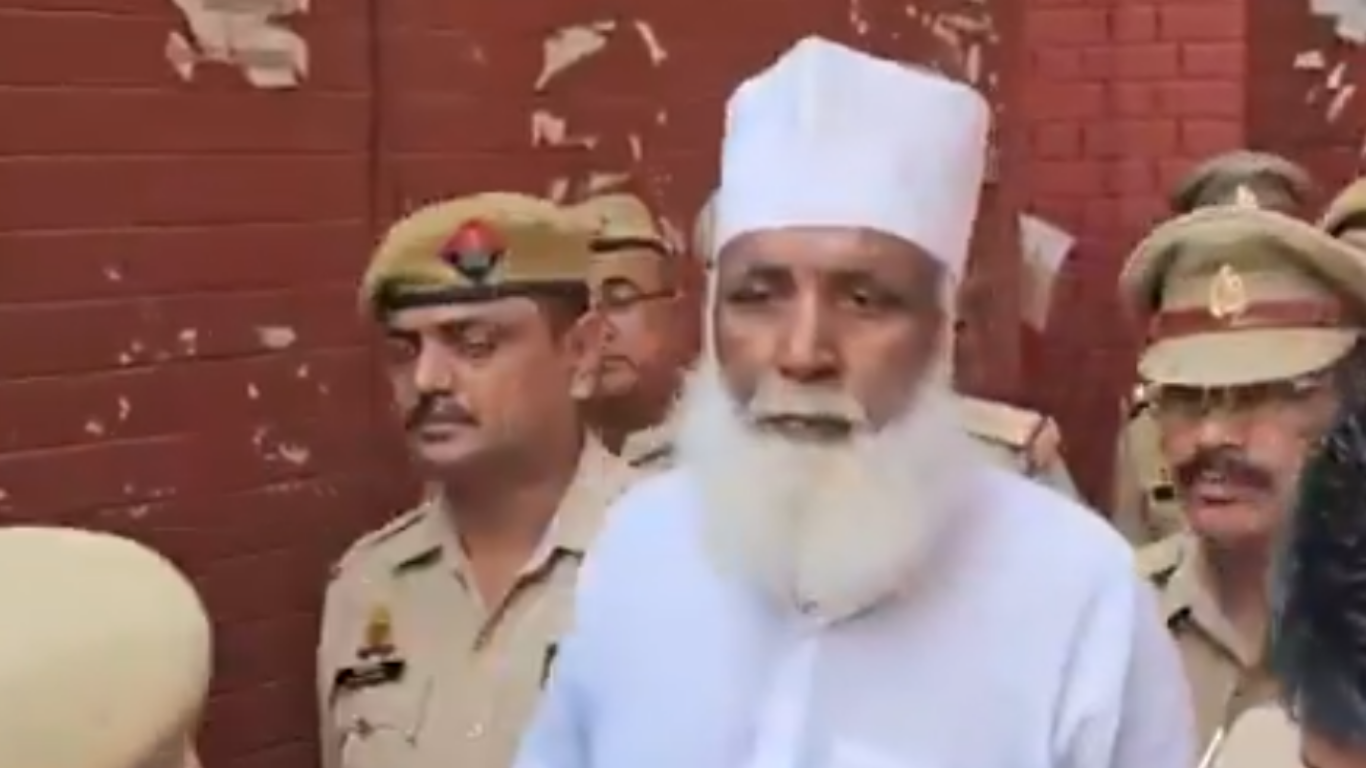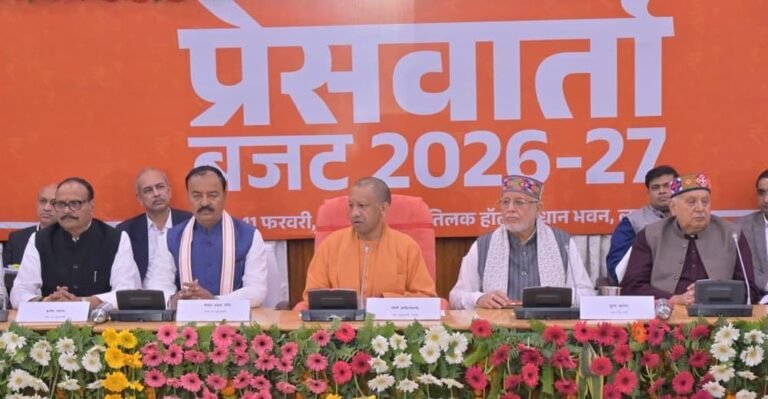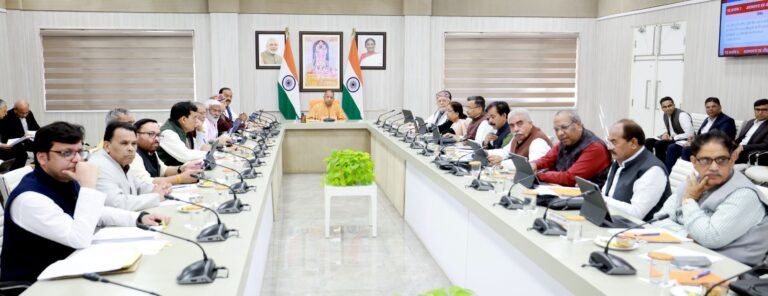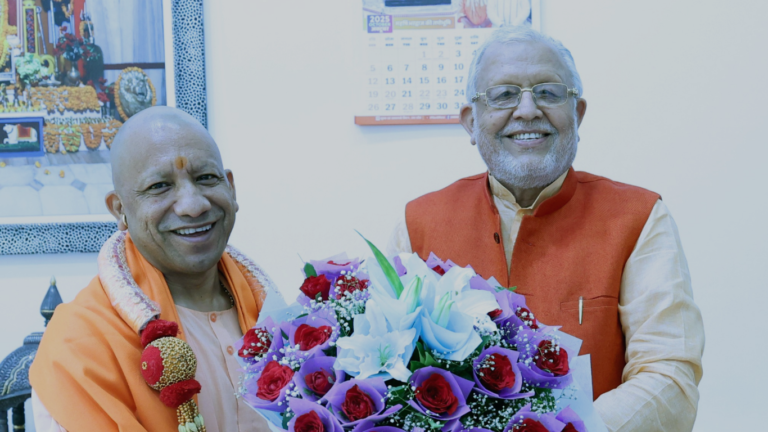
Balrampur, Uttar Pradesh, August 5, 2025: The small town of Sadullanagar in Uttar Pradesh’s Balrampur district has found itself at the center of a storm that has shaken the region and drawn attention across India. What began as whispers of illegal religious conversions has snowballed into a full-blown controversy, with allegations of foreign funding, political protection, and police complicity. A recent report by Amar Ujala has shed light on the murky details of the Balrampur Islamic Conversion Case, raising serious questions about the scale of the operation, the role of influential figures, and the lack of accountability for those involved. Here’s a detailed analysis of the case and report, with live updates as new information emerges.
What We Know So Far?
According to report, the Balrampur Islamic Conversion Case revolves around a well-organized operation allegedly led by Jalaluddin, also known as Chhangur Baba, a man accused of orchestrating a large-scale religious conversion racket. The report suggests that Jalaluddin, along with his associates Neetu (who now goes by Nasreen) and Naveen, were not the masterminds but rather pawns in a much larger scheme. Investigating agencies cited in the report point to a network with its epicenter in Sadullanagar, a small town in Balrampur, but with connections stretching far beyond India’s borders—potentially to Dubai and Pakistan.
The report claims the racket was funded by massive sums of money, with estimates suggesting up to Rs 500 crore in foreign funds flowed into the operation. At least Rs 200 crore has been confirmed, with the rest allegedly funneled through over 100 bank accounts in Nepal’s border districts, including Kathmandu, Nawalparasi, Rupandehi, and Banki. These funds were reportedly used to lure vulnerable people, particularly Hindu women and children from economically weak backgrounds, into converting to Islam through promises of jobs, money, threats, or emotional manipulation.
The report also highlights the creation of front organizations like Aasvi Enterprises, Aasvi Charitable Trust, and Baba Tajuddin Aasvi Boutique, which were allegedly used to launder money. One shocking revelation is the alleged land grab at Sadullanagar police station, where a mazar (Islamic shrine) was constructed on police-owned land under the name of a trust called “Thane Sharif Shaheed-e-Millat Abdul Quddus Shah Rahmatullah Alaih.” The trust, reportedly linked to Arif Hashmi, a former SP MLA and listed gangster, managed to register the land in its name, erasing police ownership from official records.
Allegations of Political and Muscle Backing
One of the most troubling aspects of the report is the claim that the conversion racket enjoyed significant political and muscle backing. Sadullanagar, a relatively obscure town, is described as the nerve center of the operation, with influential figures allegedly shielding the accused from accountability. The report points to Arif Anwar Hashmi, a former Samajwadi Party (SP) MLA, as a key figure in this network. Hashmi, a listed gangster, is accused of orchestrating the land grab at the Sadullanagar police station and enjoying protection from powerful political and administrative circles.
The report suggests that the conversion racket was not a local operation but part of a broader, well-funded network with international ties. Investigating agencies believe that foreign organizations, including some linked to Pakistan’s ISI and Islamic institutions like the Saudi Arabia Islamic Development Bank and the Muslim World League, may have played a role in financing the operation. These allegations, if proven, point to a sophisticated conspiracy that transcends national borders and involves significant political clout to operate undetected for so long.
The Role of the SHO: A Shield for the Accused?
Perhaps the most disturbing revelation from the report is the alleged complicity of a Station House Officer (SHO) of Sadullanagar police station. In June 2024, a formal complaint was lodged with the Additional Chief Secretary, Home Department, and the Additional Chief Secretary to the Chief Minister, accusing the SHO of colluding with senior officers to protect Arif Hashmi. The complaint alleged that the SHO filed a misleading report after a raid on Hashmi’s residence, claiming Hashmi was not present when he was, in fact, at home. This allowed Hashmi to evade arrest.
A magisterial probe later confirmed the SHO’s misconduct, but instead of facing disciplinary action, the officer was merely transferred to another police station. This move has sparked outrage among local officials and residents, who see it as evidence of political patronage shielding those involved in the racket. The questions is why no concrete action has been taken against the SHO or other officers implicated in the scandal, raising concerns about systemic corruption within the local police force.
Officers Raising Concerns Transferred
The report also highlights a pattern of abrupt transfers for officers who attempted to expose the conversion racket. When District Magistrate (DM) Singh learned of the land grab at the Sadullanagar police station, he ordered an investigation that confirmed the illegal registration of police land under the trust’s name. However, instead of being commended for their diligence, officers who flagged the issue were quickly transferred out of Balrampur. This has fueled speculation that powerful figures are working to suppress the investigation and protect the real masterminds behind the racket.
The transfers have raised serious questions about the influence of political and muscle power in Balrampur. The swift removal of whistleblowers indicates a deliberate effort to silence those who challenge the status quo. The report notes that earlier complaints about the conversion racket, dating back to December 2022, were ignored, allowing the operation to continue unchecked for years.
Magisterial Inquiry Findings
The magisterial inquiry into the Sadullanagar police station land grab and the broader conversion racket has confirmed several alarming details. The probe found that the mazar constructed on police land was not only illegal but also a deliberate attempt to erase official records of police ownership. The inquiry also substantiated claims of police complicity, particularly the SHO’s role in shielding Arif Hashmi and his brother Maroof, who was a trustee of the trust linked to the mazar.
The conversion racket targeted vulnerable groups, including Hindu women and children from poor backgrounds, using a mix of financial incentives, emotional manipulation, and, in some cases, coercion. For example, the Amar Ujala report cites the case of Harjeet, a Hindu man who was allegedly harassed, blackmailed, and forced to convert to Islam by Jalaluddin and his aide Abdul Mabdud. Harjeet later returned to Hinduism, but his story underscores the racket’s predatory tactics.
Actions Taken So Far
The Uttar Pradesh Anti-Terrorist Squad (ATS) has been at the forefront of investigating the Balrampur conversion racket. On July 5, 2025, the ATS arrested Jalaluddin and his wife in Gomti Nagar, followed by the arrest of two key associates, Sabroz and Shahabuddin, on July 19. The accused face charges under sections 121A (sedition), 417 (fraud), 420 (cheating and dishonesty), and 153A (promoting enmity between communities) of the Indian Penal Code, as well as provisions of the Uttar Pradesh Prohibition of Unlawful Religious Conversion Act 2021.
The ATS has also uncovered evidence of Jalaluddin’s financial dealings, including over 40 bank accounts involved in suspicious transactions and a Rs 6 lakh transfer to a foreign account. Properties worth crores, including a Rs 16 crore estate in Lonavala, have been linked to the racket, and the ED is now investigating these assets for possible money laundering.
In a symbolic move, authorities demolished a luxurious mansion in Madhupur belonging to Jalaluddin on July 8, 2025, signaling a crackdown on the ill-gotten wealth amassed through the racket. However, critics argue that these actions are superficial and fail to address the deeper network of political and international players allegedly involved.
The Bigger Picture: What’s at Stake?
The Balrampur Islamic Conversion Case is more than just a local scandal—it raises critical questions about governance, accountability, and the influence of foreign funding in India. The Amar Ujala report paints a picture of a well-coordinated operation that exploited vulnerable communities while enjoying protection from powerful figures. The lack of action against senior officers and political heavyweights like Arif Hashmi has fueled public distrust in the system.
One question that remains in everyone’s mind is that why the SHO was merely transferred, why whistleblowers were silenced, and why the magisterial inquiry’s findings have not led to more decisive action. As investigations continue, the nation watches closely to see whether the full truth behind this complex web of allegations will come to light.
Conclusion
The Balrampur Islamic Conversion Case is a stark reminder of the challenges India faces in tackling organized crime and systemic corruption. The Amar Ujala report has lifted the veil on a racket that allegedly thrived on foreign funds, political protection, and police complicity. While the arrests of Jalaluddin and his associates mark a step forward, the lack of accountability for those shielding the operation raises troubling questions. As the investigation unfolds, the victims await justice, and the truth.



